Related Research Articles
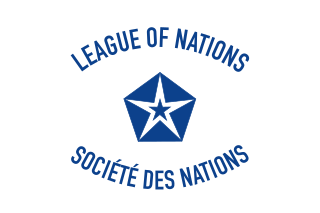
The League of Nations was the first worldwide intergovernmental organisation whose principal mission was to maintain world peace. It was founded on 10 January 1920 by the Paris Peace Conference that ended the First World War. The main organization ceased operations on 18 April 1946 when many of its components were relocated into the new United Nations. As the template for modern global governance, the League profoundly shaped the modern world.
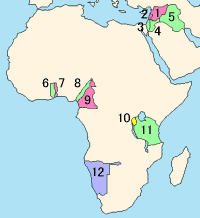
A League of Nations mandate represented a legal status under international law for specific territories following World War I, involving the transfer of control from one nation to another. These mandates served as legal documents establishing the internationally agreed terms for administering the territory on behalf of the League of Nations. Combining elements of both a treaty and a constitution, these mandates contained minority rights clauses that provided for the rights of petition and adjudication by the Permanent Court of International Justice.

The National Football League (NFL) is a professional American football league that consists of 32 teams, divided equally between the American Football Conference (AFC) and the National Football Conference (NFC). The NFL is one of the major professional sports leagues in the United States and Canada and the highest professional level of American football in the world. Each NFL season begins annually with a three-week preseason in August, followed by the 18-week regular season which runs from early September to early January, with each team playing 17 games and having one bye week. Following the conclusion of the regular season, seven teams from each conference advance to the playoffs, a single-elimination tournament that culminates in the Super Bowl, which is contested in February and is played between the winners of the AFC and NFC championship games.
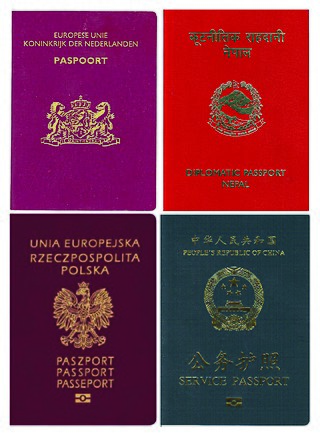
A passport is an official travel document issued by a government that contains a person's identity for international travel. A person with a passport can travel to and from foreign countries more easily and access consular assistance. A passport certifies the personal identity and nationality of its holder. It is typical for passports to contain the full name, photograph, place and date of birth, signature, and the issue and expiration dates of the passport. While passports are typically issued by national governments, certain subnational governments are authorised to issue passports to citizens residing within their borders.

Nansen passports, originally and officially stateless persons passports, were internationally recognized refugee travel documents from 1922 to 1938, first issued by the League of Nations's Office of the High Commissioner for Refugees to stateless refugees. They quickly became known as "Nansen passports" for their promoter, the Norwegian statesman and polar explorer Fridtjof Nansen.

The San Remo conference was an international meeting of the post-World War I Allied Supreme Council as an outgrowth of the Paris Peace Conference, held at Castle Devachan in Sanremo, Italy, from 19 to 26 April 1920. The San Remo Resolution passed on 25 April 1920 determined the allocation of Class "A" League of Nations mandates for the administration of three then-undefined Ottoman territories in the Middle East: "Palestine", "Syria" and "Mesopotamia". The boundaries of the three territories were "to be determined [at a later date] by the Principal Allied Powers", leaving the status of outlying areas such as Zor and Transjordan unclear.

The Emirate of Transjordan, officially known as the Amirate of Trans-Jordan, was a British protectorate established on 11 April 1921, which remained as such until achieving formal independence in 1946.

The Paris Peace Conference was a set of formal and informal diplomatic meetings in 1919 and 1920 after the end of World War I, in which the victorious Allies set the peace terms for the defeated Central Powers. Dominated by the leaders of Britain, France, the United States and Italy, the conference resulted in five treaties that rearranged the maps of Europe and parts of Asia, Africa and the Pacific Islands, and also imposed financial penalties. Germany, Austria-Hungary, Turkey and the other losing nations were not given a voice in the deliberations; this later gave rise to political resentments that lasted for decades. The arrangements made by this conference are considered one of the great watersheds of 20th-century geopolitical history.

A British passport is a travel document issued by the United Kingdom or other British dependencies and territories to individuals holding any form of British nationality. It grants the bearer international passage in accordance with visa requirements and serves as proof of citizenship. It also facilitates access to consular assistance from British embassies around the world. Passports are issued using royal prerogative, which is exercised by His Majesty's Government; this means that the grant of a passport is a privilege, not a right, and may be withdrawn in some circumstances. British citizen passports have been issued in the UK by His Majesty's Passport Office, an agency of the Home Office, since 2014. All passports issued in the UK since 2006 have been biometric.

An Irish passport is the passport issued to citizens of Ireland. An Irish passport enables the bearer to travel internationally and serves as evidence of Irish nationality and citizenship of the European Union. It also facilitates the access to consular assistance from both Irish embassies and any embassy from other European Union member states while abroad.

United States passports are passports issued to citizens and nationals of the United States of America. They are issued exclusively by the U.S. Department of State. Besides passports, limited-use passport cards are issued subject to the same requirements. It is unlawful for US citizens and nationals to enter or exit the country without a valid US passport or passport-replacement document compliant with the Western Hemisphere Travel Initiative, though there are many exceptions; waivers are generally granted for U.S. citizens returning without a passport, and the exit requirement is not enforced. As of December 2023, a United States passport allows visa-free travel to 186 countries and territories, being ranked as the seventh most powerful in the world in terms of travel freedom.

An Indian passport is a passport issued by the Ministry of External Affairs of the Republic of India to Indian citizens for the purpose of international travel. It enables the bearer to travel internationally and serves as proof of Indian citizenship as per the Passports Act (1967). The Passport Seva unit of the Consular, Passport & Visa (CPV) Division of the Ministry of External Affairs functions as the issuing authority and is responsible for issuing Indian passports on application to all eligible Indian citizens. Indian passports are issued at 93 passport offices located across India and at 197 Indian diplomatic missions abroad.
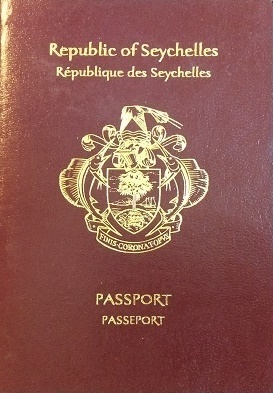
Seychelles passports are issued to citizens of Seychelles to travel outside the country.

The British Indian passport was a passport, proof of national status and travel document issued to British subjects of British India, British subjects from other parts of the British Empire, and the subjects of the British protected states in the Indian subcontinent. The title of the state stamped on the outside cover but not inside the passport was the "Indian Empire", which covered all of India, Pakistan, Bangladesh, and Myanmar (Burma).
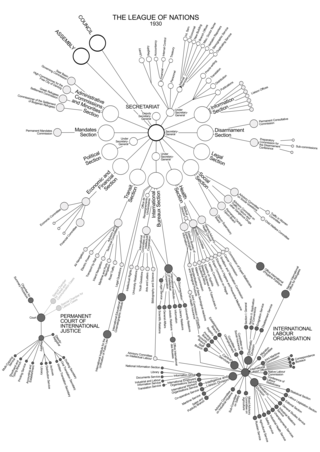
The League of Nations was established with three main constitutional organs: the Assembly; the Council; the Permanent Secretariat. The two essential wings of the League were the Permanent Court of International Justice and the International Labour Organization.
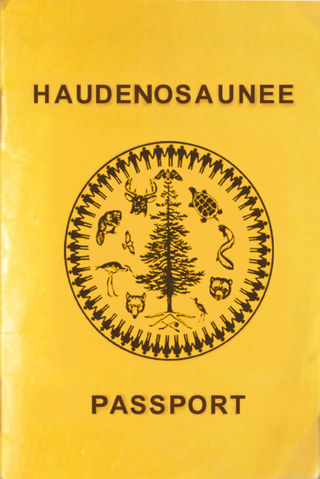
The Iroquois or Haudenosaunee passport is an important form of identification, cultural agency and an "expression of sovereignty" used by the nationals of the Six Nations.
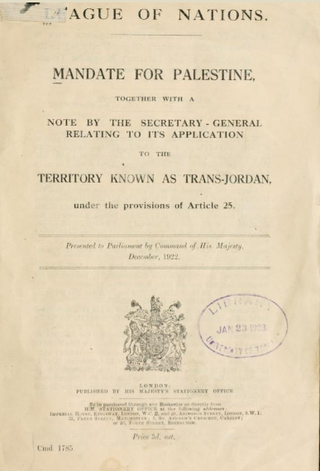
The Mandate for Palestine was a League of Nations mandate for British administration of the territories of Palestine and Transjordan, both of which had been conceded by the Ottoman Empire following the end of World War I in 1918. The mandate was assigned to Britain by the San Remo conference in April 1920, after France's concession in the 1918 Clemenceau–Lloyd George Agreement of the previously agreed "international administration" of Palestine under the Sykes–Picot Agreement. Transjordan was added to the mandate after the Arab Kingdom in Damascus was toppled by the French in the Franco-Syrian War. Civil administration began in Palestine and Transjordan in July 1920 and April 1921, respectively, and the mandate was in force from 29 September 1923 to 15 May 1948 and to 25 May 1946 respectively.
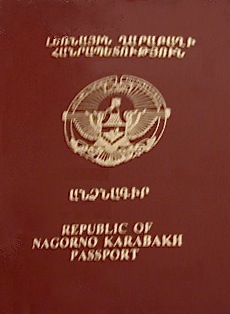
Artsakhi passports were issued to Artsakhi citizens to travel outside the partially recognized Republic of Artsakh. They were also used as proof of identity within the country. Passports of the Republic of Artsakh were issued based on amendments to the Constitution of Artsakh of 2006.

The League of Nations archives is a collection of the historical records and official documents of the League of Nations. The collection is housed at the United Nations Office at Geneva (UNOG), where it is managed by the Institutional Memory Section (IMS) of the UN Library & Archives Geneva. It consists of approximately 15 million pages of content and comprises nearly 3 linear kilometers. A project to digitize the archives was launched in 2017 and completed in 2022. The League of Nations archives' historical significance is recognized by UNESCO, with its inscription on the Memory of the World Register in 2009.
References
- ↑ "League of Nations Photo Archive - Timeline - 1920". Indiana University. Archived from the original on April 6, 2013. Retrieved July 13, 2013.